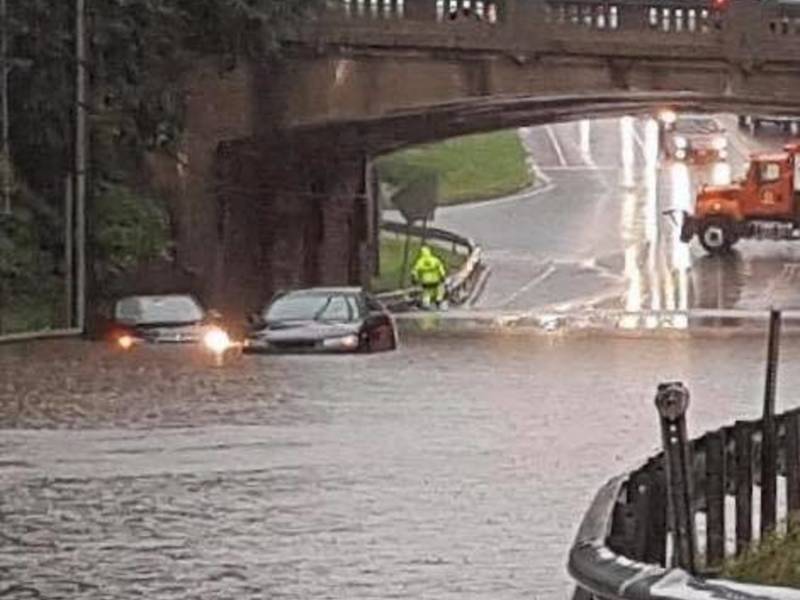
Ugh.....water damaged your car...now what?
Wherever you are, you always want to avoid high water because it doesn’t mix well with vehicles, especially computer and electrical systems. With the flooding in Virginia Beach and the Texas Coastal area most recently, sometimes the damage can’t be avoided. Water damage inside a vehicle is often devastating. When it happens, it can become hard to remove, some say near impossible. The seats may develop mold over time. The carpeting or leather may warp. It can also cause significant damage to the engine and electronics. In this situation, your first step is to call your auto insurance company. Find out if you can file a claim. Many times, this damage has coverage but sometimes not (and definitely not in the case of a liability only policy). There are a few things to consider for a car insurance company and you, before you make a claim.
When Does Car Insurance Cover Water Damage?
The cause of the water damage matters. Car insurance companies don't cover damage to a vehicle due to normal wear and tear or damage brought on by mistakes of the driver. For example, if you failed to repair the sunroof of the car and a leak formed, your policy is not likely to provide coverage for the losses.
It could cover instances when actions of Mother Nature occur (a thunderstorm or flood-caused damage). It doesn't always provide coverage; especially if you did not take the steps necessary to protect your car – and you could have.
What to Do with a Water-Damaged Car
If your car suffers water damage for any reason, you can contact your auto insurance company. Ask them what your options are. In many cases, if coverage available, the insurer will provide steps for you to take. This may include having an inspection of the car completed. This will provide insight into what caused the damage, why the damage occurred, what amount of damage is present, what long-term consequences are possible, and if the company thinks it can repair the vehicle.
In some cases, a significant amount of damage and saltwater damage may warrant totaling the car (saltwater is more corrosive). If the cost to make repairs is too high, the car insurance company can recommend this. If the damage is within the scope of the policy, the claims agent will provide instructions on the next steps. This includes telling you how much coverage is available for the repairs and your deductible.
Water damage on cars can be dangerous, making vehicles unreliable. Have it checked out immediately. Do not put off getting these repairs cared for by a trained and trusted technician familiar with water restoration (many don't want to do this kind of work). Let your auto insurance company claims representative provide insight into what your options are for making repairs, if any.
(Note: Flooding always means "buyer beware" when you're shopping for a new or used vehicle near the time of a flood. Stick with reputable, reliable, long-term car dealerships.)
For car insurance quotes, contact Solo Insurance® at 800-207-7656 or get a free quote online.
Solo Insurance® where great rates and service meet. We shop the rates for you upfront and at renewals, always making sure you are with our best rate for your insurance needs. Like us on Facebook, follow us on Instagram and Twitter @thesoloins.
Solo Insurance® 800-207-7656 Get a Quote: https://www.soloinsurance.net/
– Veteran/Family owned since 1994 –